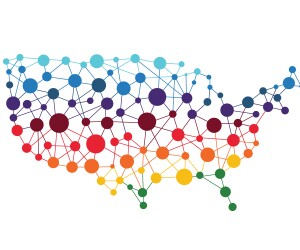Many education advocates are crying out for high school graduates to have the knowledge and skills to succeed in postsecondary jobs or in the college programs necessary for their chosen careers. These advocates justify their focus on college and career readiness with what they see as the growing complexity of the world and the increasing demands of the 21st-century workforce.
But when I consider what lies ahead for today’s students, I wonder what careers will continue to be reliable, as mechanization takes over and many of today’s work opportunities disappear. I also look at the present state of our nation and worry whether our citizenry will be equipped to deal with the demands of living in a democracy.

I am distressed by the narrowness of an educational vision fixated on readiness for college and careers, especially in the wake of a . This disheartening voter turnout points, at least in part, to the failure of schools to educate our population about what it means to be a citizen in a democracy. Students must understand that they have the right and, yes, the responsibility to participate in selecting the officials who will be dealing with questions of war and peace, economic development, and civil rights.
Suggestions abound for how to prepare students for employment or university study. Some recommend dividing students into groups of those headed directly for the workforce and those intending to go on to college. Others call for content relating to the demands of the workplace to be integrated into the curriculum. In every case, the emphasis remains on the need for students to master the skills and knowledge as measured on standardized tests in mathematics and reading.
Today’s educational institutions rely heavily on standardized-test data to assess student achievement, but give little attention to the role of education in developing an involved citizenry. Upon close examination, however, there are examples of how elements of democratic living can become part of school life.
At the Louis Armstrong Middle School in New York City, where I served as the Queens College coordinator of a school-college collaboration over the course of several decades, I got to see democratic practices up close in a weekly student-advisory session I chaired. At one session, the students raised the lack of teacher coordination regarding the assignment of homework, with pupils reporting unmanageable evening workloads. The problem was discussed and referred to the school leadership team of teachers, administrators, parents, and students who could implement solutions. A problem had been identified, heard, and addressed.
I am distressed by the narrowness of an educational vision fixated on readiness for college and careers."
At the Abraham Joshua Heschel School in Manhattan, which my granddaughter now attends, all high school students go to monthly town hall meetings. Most recently, discussion focused on LGBT issues and featured a panel that included two gay teachers and two gay alumni to encourage a better understanding of the effects of discrimination. Such conversations about human rights and the treatment of this segment of the community in town hall meetings represent an example of democracy in action.
In schools fortunate enough to have an integrated student population, cultural heterogeneity provides an opportunity for citizenship education. For example, it has been practice for some teachers at the Louis Armstrong Middle School, a school legally mandated to reflect the racial composition of the borough of Queens, to begin the school year with the “You” curriculum. Children in these classes construct family trees, interview parents, bring artifacts from home, teach each other dances and songs, and create timelines of family history. These efforts reduce ignorance of other cultures and counter the development of racism.
Daily events can provide grist for promoting understanding of the principles and institutions that govern our country. For example, the recent election dramatized the role of the Electoral College and the part its creation played in the writing of our Constitution. Students exposed to the selection of a U.S. Supreme Court justice not only can learn about the separation of powers, but are also more likely to become informed and involved citizens.
More schools have come to accept that they must help students acquire the sense of individual and community responsibility needed to become good citizens. Consider the annual celebration of Martin Luther King Jr.'s birthday. Students and schools everywhere are mobilized for a day of community service, such as providing food for the needy. But one day a year is not enough. Worthwhile as these activities may be, the development of empathy is what truly characterizes a citizen who cares about his environment, his city, his country, and his fellow citizens—and also votes.
This ability to care about others is more likely to develop when a school has built the concept of service into its ongoing school day. In such a school, students become involved in day-care programs, senior-citizen centers, and schools for children with autism. In such a school, students take part in community-improvement activities, such as cleaning up the neighborhood park. In such a school, senior adults are invited to participate in school events.
As I consider the role of schools in preparing students for adulthood and citizenship, I look again at the low turnout in the recent election and reflect on the importance of education in bringing democracy to the lives of children and their schools.
I am reminded of the scope of the task ahead when I read the words of John Dewey. “We have taken democracy for granted,” he once wrote. “We have forgotten that it has to be enacted anew in every generation, in every year and day, in the living relations of person to person in all social forms and institutions.”




